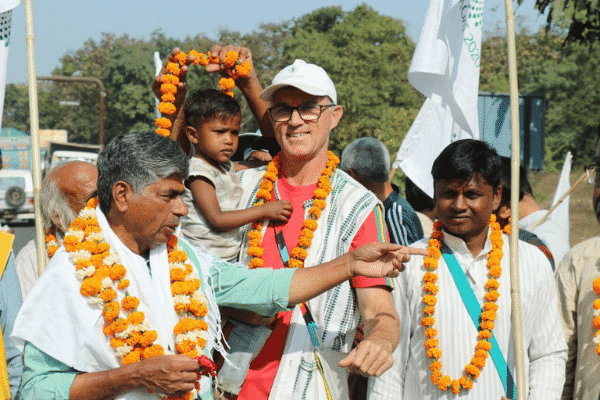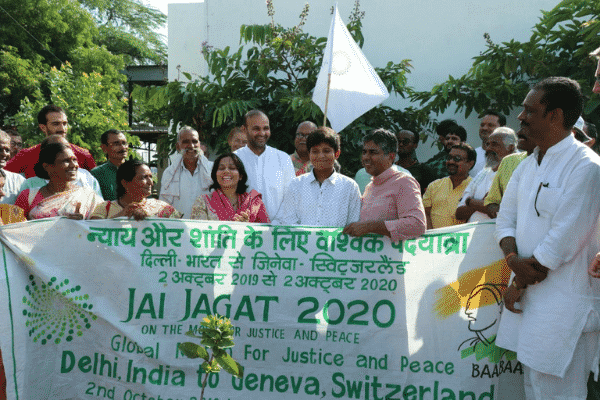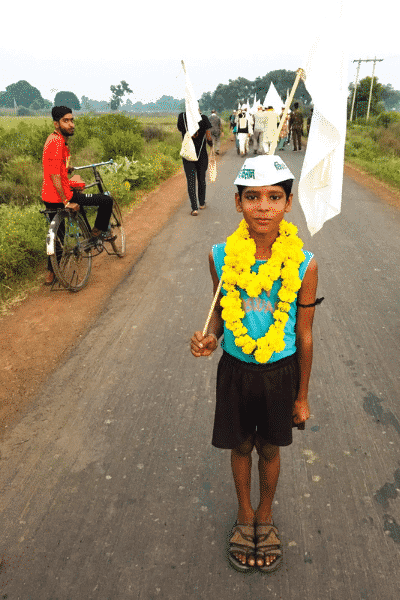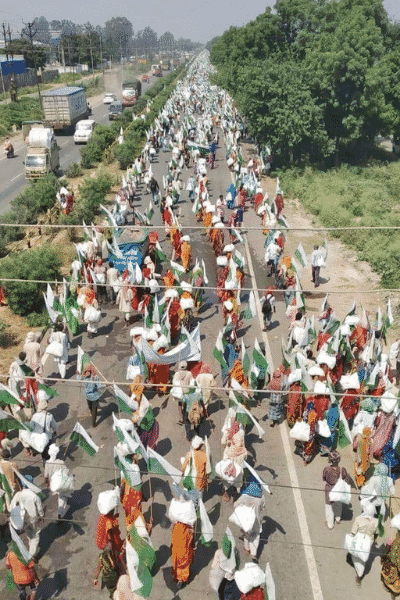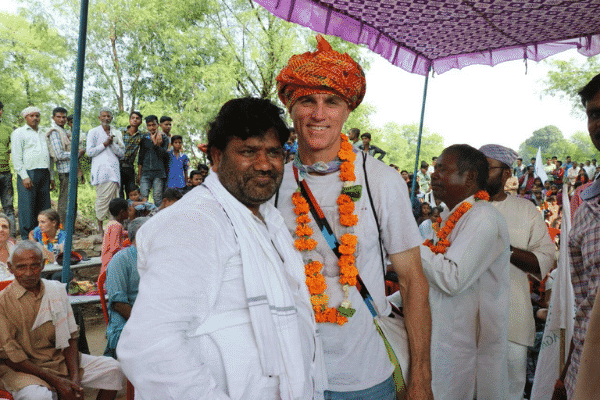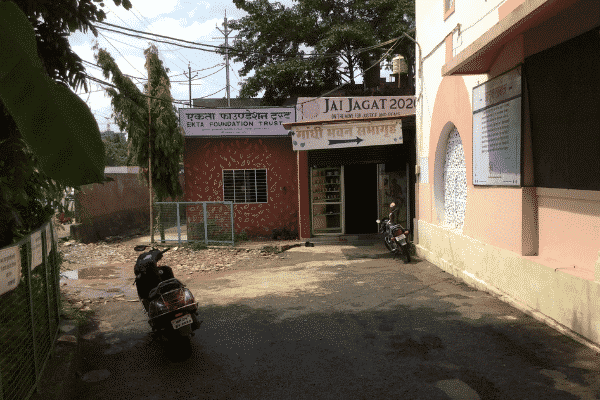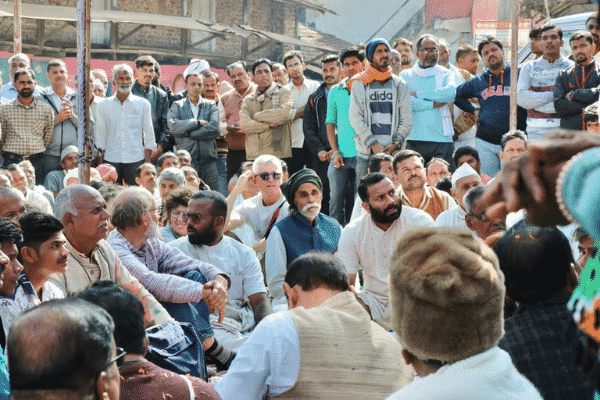Kiwi by birth and Indophile by choice, volunteer Ben Chapple’s tryst with India first began on a trip to Chandigarh as a mature age student pursuing a social welfare degree. Five years on, the 56-year-old reached out to Indian Link to continue to help serve the cause of Indian Adivasi (indigenous) communities he came to know on his travels, and that have been adversely affected by the COVID-19 pandemic.
Describing his maiden trip to India, Ben told Indian Link, “It was a cultural program hosted by Punjab University. We received lectures from different faculties which illuminated a very broad understanding of Indian culture. We visited welfare organisations and did some touring, including the Golden Temple. At that point, I decided I loved India and just vowed to return.”
When he did return in 2018, he revisited friends that he’d made. These included the Prince of Rajpipla in Gujarat, Manvendra Singh (the only ‘out’ Indian prince), Ben had been impressed by his advocacy for LGBTQ+ rights. After striking up an email friendship, the prince invited Ben to stay with him in his countryside cottage. They did yoga in the mornings and the prince would tell him stories from his life.
This was where Ben grew aware of how the Indian upper class lived. Though the Prince leads a simple life now, stories of his past generation’s classic car collections and elite events with dignitaries only encouraged Ben to work towards the upliftment of landless and homeless Adivasi people.
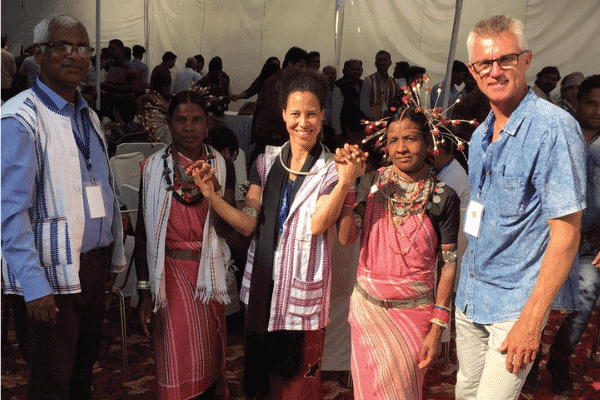
Ben began to investigate how feasible it would be to conduct personal Child Welfare advocacy. He conducted multiple meetings and conferences with a cross section of people. It all went smoothly until he was mugged at gunpoint in Delhi the day before his departure from India.
The mishap turned out to be serendipitous – it brought him in close contact with the international coordinator of the Jai Jagat movement (JJM), a global campaign for justice and peace rooted in Gandhian philosophy.
Jai Jagat Movement’s Peace March: Delhi to Geneva
With the JJM, Ben became initiated in a grueling physical adventure that would truly test his devotion to social welfare. As a participant in Jai Jagat’s 2020-21 Peace Yatra from Delhi to Geneva, he set off a 11,000km journey on foot, traversing 17 countries, advocating for non-violence and justice.
Participants of the peace convoy would walk while their luggage was transported by trucks. Fortunately, Ben had retained a good level of fitness because he was an active sportsperson as a youth.
Yatris (travellers) would join on different stages of the Peace Yatra from the own countries, and stay in dormitory rooms with others. They would wake at 7am, make sure all the washing was done and get their bags ready to be thrown on the truck. Chores and communal activities were assigned to all. Yatris would be given responsibilities for the day or they would meet and engage with local community members.
“You quickly learned to not be too precious,” Ben remarked. “Your individual egos were diminished as you realised you had to fit well in the group. And then of course, you might have been tired from doing up to 38km a day. You would also be exhausted because you were quite exposed; all your outer layers of skin had been peeled off like an onion revealing different things. As each layer came to pass you were forced to confront who you were, and how you wish to relate to whatever you were going to confront in the day.”
He went on, “Once we were walking through a thick forest area along the tree line and 10 metres off the path were an old couple sitting outside their home. Seeing them struggling to stand up, I rushed to them. They donated 1 and 2 rupees respectively in my kalash. I saw that they were both weeping, I think they were really upset that they couldn’t come up to us. It was beautiful witnessing the weakest and poorest of us desperate to contribute to society. If only there was good leadership in place.”
Just before they were to sail across the Black Sea, the peace convoy was close to reaching its final destination in Europe when COVID struck. The Jai Jagat volunteers who had walked 2,400 thus far, had to turn around and fly back to their home countries in disappointment.
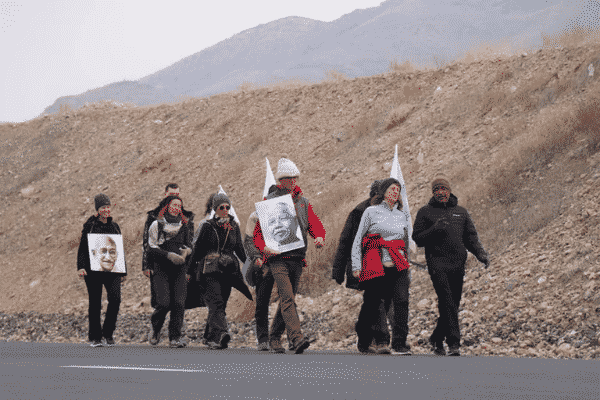
READ ALSO: Aussie social worker struggles to keep Pune school afloat
COVID relief for Adivasis
Ben’s current fundraiser in association with the Catholic Bishop’s Conference of India (CBCI), supports a holistic health development project for Adivasi peoples and the rural tribal regions of Chhattisgarh, Jharkhand and Odisha.
“We’re raising money to bank them off against the next wave of COVID. We’ve been functioning with funds from foreign donors because India’s own internal systems don’t have much in place,” Ben revealed. “Internal funds have mainly been allocated to the big cities, village people in rural settings received absolutely no support through the second wave, and they were ravaged by COVID.”
India’s latest census in 2011 depicted that out of the 100 million people living in the three key north-Indian states that form the Adivasi movement, about 17 million were Adivasis and Indigenous tribes.
Ben’s bond with India remains so strong partly because of familiar indigenous beliefs in Australia, where he has lived for the last two decades.
Having worked with Aboriginal housing in Sydney’s Redfern, Ben came to learn the three ‘pillars’ held by the indigenous community: “Respect, sustainability, and providing for future generations.”
“This is really the focus for Australian Aboriginal people – providing for the next generation. I haven’t been to any other indigenous communities, but when I went to India, I saw the same value system, except the Adivasis adopted a fourth pillar –consensus,” Ben said optimistically.
Historically, India’s Adivasi and tribal people have been excluded, suffered neglect from political governance, land grabbings and other injustices.
Ben choked up reflecting on the plight of the Adivasis.
“Yet on my travels, I saw that because of the church’s activities and social welfare support network, there’s a good, positive sprinkling of education. They are seeking equity irrespective of faith or language,” Ben said. “I’m not religious at all, but the Catholic Church is providing the social welfare networks that we might take for granted in Australia.”
Donate to Ben Chapple’s fundraiser for aid to Indian indigenous tribes and Adivasi communities here.
READ ALSO: Where to donate for COVID relief in India
Link up with us!
Indian Link News website: Save our website as a bookmark
Indian Link E-Newsletter: Subscribe to our weekly e-newsletter
Indian Link Newspaper: Click here to read our e-paper
Indian Link app: Download our app from Apple’s App Store or Google Play and subscribe to the alerts
Facebook: facebook.com/IndianLinkAustralia
Twitter: @indian_link
Instagram: @indianlink
LinkedIn: linkedin.com/IndianLinkMediaGroup



